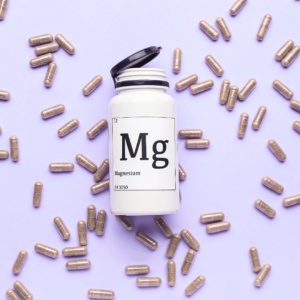Unfortunately, most of us have had subpar experiences at the GP, particularly when it comes to women’s health and fertility concerns. Quick 10-15 min appointments do not allow sufficient time to adequately explore a woman’s health or fertility concern and a lot of women and couples can find themselves feeling not listened to, disappointed, frustrated and not sure where to turn next.
To truly address this issue, the entire medical system would need to be overhauled. Whilst we don’t have that type of power, we do have various options and choices for visiting with our GP an experience that is productive and where our concerns are appropriately listened to.
Below are 8 tips to help get the most out of your next GP consult:
Go in with data
GPs are a sciencey bunch and they love data! This is where something like BBT charting is endlessly helpful in providing concrete data, even if the GP is unsure of how to interpret a BBT chart, you can! If you can see on your chart that your ovulation has been consistently delayed, or it appears that your luteal phase is becoming shorter, you can give this specific data to them.
If you are experiencing heavy periods, don’t just say “My period is really heavy”, say “I have a heavy period, I am changing a regular or heavy pad once every 2 hours and am passing clots the size of a 50c coin. I leak through my clothes and need to change my pad at night time to avoid leaks. I double up with period products with both a tampon and pad”. This type of information will land differently with your GP than just saying “My period is heavy”. They may not probe further in getting specific on what you mean so you need to provide all the details for them.
This can be for any concern you are going in with, don’t use vague language that can be interpreted in different ways, and provide the exact details (bring notes if you need to!)
Get recommendations first
Especially if this appointment is for a significant woman’s health or fertility concern, don’t go to an “untested” GP, talk to your family and friends, and put a call out on social media for recommendations. Going to someone that has been highly recommended is more likely going to give you a positive experience.
Consider an integrative Doctor
Check out the profile of the Doctor you have chosen on the clinic website. Do they practise integrative medicine in any way? Have they had further training in nutrition, meditation or mindfulness? Do they mention the word holistic in their bio? These types of doctors are more likely to look at you and your health as a whole, rather than segmented parts. And are also more likely to be open to other forms of medicine such as herbal medicine, supplements, exercise, acupuncture etc.
A truly integrative Docror will have done further extensive training and is likely to offer longer appointment times. A longer appointment time in itself shows that this Docror is expecting to have a deeper conversation with you about your concerns and try to support your problem more cohesively. These Doctors are likely to charge more, but are typically worth it than yet another disappointing GP appointment.
Blood tests
If you need blood tests done, consider speaking with another practitioner first (like a nutritionist, naturopath, Chinese medicine practitioner, coach etc) who can guide you in what types of blood tests would be most beneficial for you and why. Go in with a list of the tests you would like to have done and a rough understanding of why each test would be beneficial for you.
Don’t be afraid to break up with your GP
The good thing is, there’s lots out there! Even if your whole family has been seeing the same GP since 80s, it’s okay to change and find someone new if you feel your concerns aren’t being sufficiently listened to. The same goes if you have a GP who is dismissive, makes you feel small/embarrassed/ridiculed for certain choices/feels like you are on the defence when you go in. If disrespectful language that makes you feel uncomfortable occurs, you can simply say goodbye to that doctor and begin the scout for a new one.
Don’t be afraid to ask questions
If something is recommended for you or you are given a certain diagnosis and you are unclear as to why, please ask! Your doctor *should* endeavour to explain things to you in a way that leaves your appointment feeling clear and confident with a plan. If you’re not experiencing this, it may be time for a switch.
Have a buddy you can talk to
For many people, doctor appointments can be an unpleasant experience filled with anxiety. Have a friend who you let know when you’ll be going in for your appointment and have a plan to debrief with them afterwards. Even if it’s a wonderfully positive experience, it can be helpful to talk through the appointment with a trusted friend especially if it’s concerning health challenges you are navigating.
Remember one doctor can’t be everything for you
And this is okay! Often with certain health concerns or challenges, it requires a team effort, this may look like your trusted GP, a nutritionist, your Chinese medicine practitioner a pelvic floor physio, or a therapist. Remember that doctors have a specific skill set and it’s okay that they may not actually know “everything” and there are lots of different modalities out there that can also help to support you.
At Femtek we love empowering women to take back control of their health, and having black-and-white concrete data on your own body provides an enormous leg up when supporting your health to be the best it can be.





